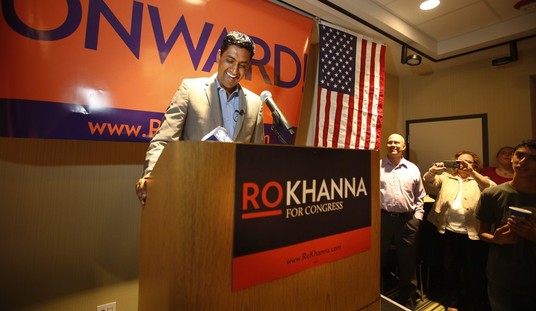The always-invaluable John Fund of the Wall Street Journal writes today about the manner in which the House and Senate will likely go about reconciling their very different versions of ObamaCare. Will that process be open and transparent, as Democrats promised? Will the negotiations be telecast on C-SPAN, as Obama vowed last year? Not exactly, although the ping-pong process Fund describes still leaves a big problem for Democrats in the Senate:
When Democrats took over Congress in 2007, they increasingly did not send bills through the regular conference process. “We have to defer to the bigger picture,” explained Rep. Henry Waxman of California. So the children’s health insurance bill passed by the House that year was largely dumped in favor of the Senate’s version. House Ways and Means Chairman Charles Rangel and other Democrats complained the House had been “cut off at the knees” but ultimately supported the bill. Legislation on lobbying reform and the 2007 energy bill were handled the same way — without appointing an actual conference.
Rather than appoint members to a public conference committee, those measures were “ping-ponged” — i.e. changes to reconcile the two versions were transmitted by messenger between the two houses as the final product was crafted behind closed doors solely by the leadership. Many Democrats grumbled at the secrecy. “We need to get back to the point where we use conference committees . . . and have serious dialogue,” said Rep. Artur Davis of Alabama at the time.
But serious dialogue isn’t what Speaker Pelosi and Majority Leader Reid are interested in right now. Look for the traditional conference committee to be replaced by a “ping-pong” game in which health care is finalized behind closed doors with little public scrutiny before the bill is rushed to the floor of each chamber for a final vote.
Pelosi will have no trouble twisting arms in her chamber to get to 218 on any version of ObamaCare. It only got as close as it did the first time, when it passed by just five votes, because Pelosi was able to manage the vote, allowing Democrats at risk in 2010 to cast a vote against the bill in numbers too small to threaten passage. She probably had ten to twenty votes left to use if needed, and Pelosi will not have any procedural obstacles in her way.
On the other hand, Reid will have the same problem he does now. Even that kind of a compromise vote has to have debate, which means it has to clear cloture at least once, and possibly as many as three times. If the various payoffs that got the present bill to a floor vote are gone, expect that to be an insurmountable problem for Reid. The same is true if the new bill contains a public option or Medicare buy-in. Reid has no votes to spare to get past cloture, and any retreat from the status quo this week will lose votes from at least one Senator, or possibly more than that.
Of course, since the White House has all but punted on ObamaCare in favor of a “hard pivot” to jobs, this may all be a little bit academic, at least for the moment. But John rightly points out that this hardly represents “transparency,” or honesty in government. This entire year has consisted of backroom deals, vote buying, and financial shell games as a means to hide the true costs and impact of ObamaCare. The American electorate doesn’t need a conference committee televised on C-SPAN to take the correct lessons from the cesspool of corruption in the Reid-Pelosi Congress, and they’ll remember it at the midterms.







Join the conversation as a VIP Member